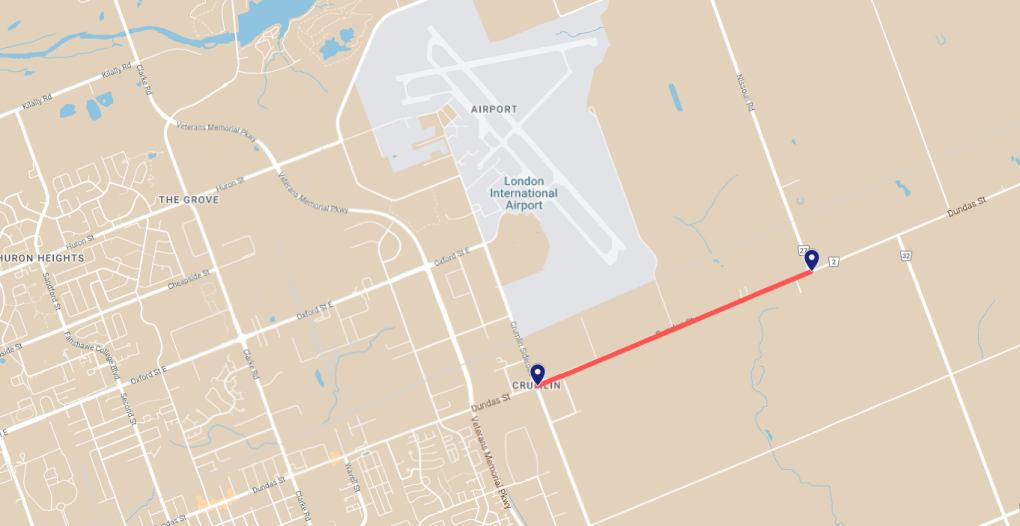The government has rejected several amendments to the controversial strikes bill, as unions staged an ’emergency protest’ outside parliament.
On Monday evening (22 May) MPs voted down several amendments to the Strikes (Minimum Service Levels) Bill that were put forward by the House of Lords, each motion to disagree winning by 50-60 votes.
These included changing the application of the bill from Great Britain to England only; ensuring a worker would not be dismissed for not complying with a work notice; introducing the requirement for a consultation to be carried out and reviewed before the government could set minimum service levels; and ensuring there were no legal consequences for unions that induce workers who have been identified on a work notice to go on strike.
Only one amendment was taken on board by the government: when deciding whether to identify a person in a work notice, an employer cannot consider whether the person “has or has not” taken part in trade union activities, made use of their services or had a trade union raise issues on their behalf.
Business minister Kevin Hollinrake said: “This bill was introduced with the intention of balancing the ability to strike with the rights and freedoms of the public, by applying minimum service levels on strike days to protect the lives and livelihoods of the public.
“We should not ignore the fact that the economic costs of these strikes have been estimated at around £3 billion, and much of that impact falls on business sectors that are already facing difficulties, such as the hospitality sector.
“The bill brings the UK into line with many other countries: Spain and France have statutory minimum service levels in ambulance services and they also, along with Belgium, have statutory minimum service levels in fire services. In some countries, such as the United States of America, Australia and Canada, some services are prohibited from taking any strike action altogether. However, the government are not suggesting we go that far.”
Hollinrake said limiting the application of the Strikes (Minimum Service Levels) Bill to England would have meant that industrial action would have a “disproportionate” impact on Wales and Scotland.
He said that introducing a requirement for the government to consult on minimum service levels would further delay the implementation of the policy, and that removing consequences for workers and unions that did not comply with work notices would leave employers “powerless to manage instances of non-compliance”.
Ian Lavery, Labour MP for Wansbeck, said the legislation was “a battering ram against ordinary working people”.
He said: “I have mentioned the resistance that will be shown in this country if we start sacking the nurses, the teachers and the posties. Blaming the posties for breaking the universal service obligation; blaming the teachers for education in their classes; blaming the nurses for the backlog – you name it, that is what the bosses will do. That will start under this legislation, as they will have the power to sack people.
“There will be resistance like we have never seen before. The difference is that the public are on the side of the workers on this one, so be ready” – Ian Lavery, Labour
“There will be resistance like we have never seen before. The difference is that the public are on the side of the workers on this one, so be ready.
“How can the government expect a trade union to take responsibility for individuals who might not want to accept a basic human right? It is bizarre. It is absolutely crazy.”
Unite national officer Onay Kasab told Sky News that the legislation is “unworkable, undemocratic and unnecessary”, particularly in the NHS where the government should be “talking about safe staffing levels every day of the year”, not only during strike action.
Onay Kasab(Unite the Union) – “The govt’s anti-strike bill is unworkable, undemocratic & unnecessary… we have an ocean of crocodile tears from Tory ministers saying this is about patients safety… when they should be talking about safe staffing levels every day of the year.” pic.twitter.com/lXk5BkpNkg
— Haggis_UK 🇬🇧 🇪🇺 (@Haggis_UK) May 23, 2023
Unions including the National Union of Rail, Maritime and Transport Workers (RMT), the Fire Brigades Union (FBU), and Unison joined the TUC protest outside parliament.
The FBU’s general secretary Matt Wrack said: “It’s outrageous that the government has ridden roughshod over the opposition by these key workers, who took to the streets outside parliament to protect their right to strike in defence of jobs and wages.
“However, this vote in parliament is not the end of the fight against this authoritarian and undemocratic assault on employment rights. Far from it. A mass campaign of opposition and defiance can make this law unworkable and ultimately defeat it.”
General secretary of the @RMTunion Mick Lynch called for a “mass campaign of workplace disobedience” if the Strikes (Minimum Service Levels) Bill is enacted. pic.twitter.com/1QFzgFwwW9
— London Live (@LondonLive) May 23, 2023
RMT general secretary Mick Lynch called on workers to “unleash a mass campaign of workplace disobedience and defiance” if the strikes bill is enacted.
Julia Kermode, founder of independent workers’ body IWORK, commented: “The anti-strikes bill has all the makings of a disaster. International politicians have already condemned it, yet the government isn’t listening.
“Going on strike isn’t a decision anyone takes lightly, especially as they usually lose pay for doing so. But these people feel they have nowhere left to turn.”
The Labour Party has said it will repeal the bill if it wins the next general election.
Employee relations opportunities on Personnel Today
Browse more Employee Relations jobs
https://www.personneltoday.com/hr/mps-vote-down-strikes-bill-amendments/




